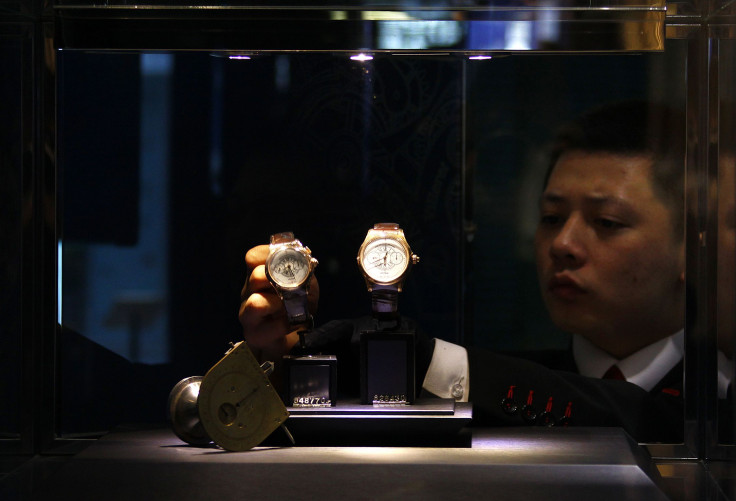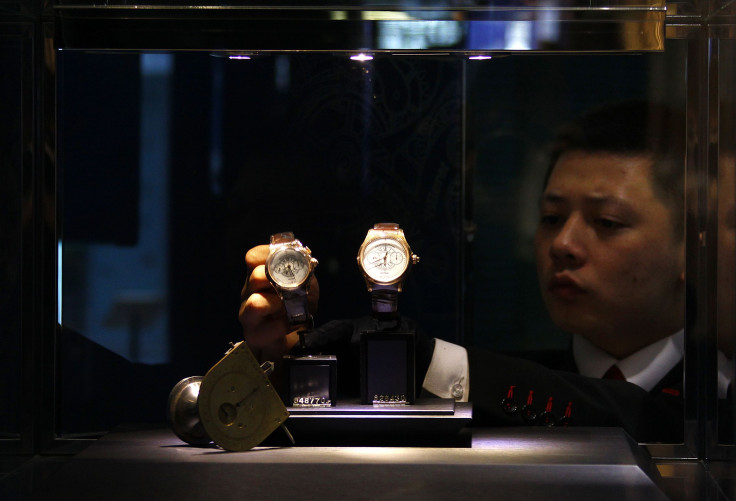Swiss Watchmakers Facing Uncertain Future Due To Decreased Demand From Chinese Consumers

The Swiss watch industry is facing an uncertain year due in large part to China’s austerity measures, recently put in place to crack down on corruption among government officials, according to the Financial Times.
Mainland China is the world’s third-largest watch market -- behind Hong Kong and the U.S. -- and in recent years has been fueling growth in the watch industry. Now, demand is going down in China. Exports of Swiss watches to China fell 26 percent in the first three months of this year compared with the same period last year, and Swiss watchmakers are bracing themselves for the slowdown.

“This year in one word? Unpredictable,” says Thierry Fritsch, chief executive of Chaumet, the Parisian jeweler cum watchmaker that belongs to LVMH’s stable of brands, according to the Financial Times.
The slowdown is in part due to a larger slowdown in China’s economy, but the main cause is President Xi Jinping’s crackdown on corruption. China’s public servants have long had the tradition of opulence -- banquets, expensive cars, gifts and bribes in the forms of luxury products, including watches. The austerity measures are attempting to put a stop to all of that and may have far-reaching effects outside of China.
“It is rapidly becoming clear that the impact of the clampdown on gifting in China is going to be one of the determining features of the year,” Jon Cox, head of Swiss research at Kepler Capital Markets, said. “Greater China accounts for around a third of the Swiss watch market. If the Chinese stop buying watches as gifts, the big question is how long can sales hold up.”
Despite the uncertainties, however, many Swiss watch brand executives remain nonplussed by the slowdown, which they hope to be temporary.
“In the U.S., you have a slowdown every four years because of the [presidential] elections. But then things pick up again,” François Thiébaud, president of Tissot, said. “It is the same in China. They have had a change of leadership and spending has slowed down because people are uncertain. When they are more certain, they will spend again.”
Other than the cyclical nature of the industry, watchmakers are also counting on Xi’s anti-corruption measures to be like those that have come before in China -- initially severe only to taper off in the long-term.
Even if China’s austerity measures are here to stay this time around, there may not be anything to worry about. China’s economic expansion and the emergence of a middle class will eventually make up the current fall in luxury watch demand.
“Ultimately, the rising wealth of private sector will fill the gap,” Cox said, according to the Financial Times. “In the medium-term, I am optimistic on the prospects.”
© Copyright IBTimes 2024. All rights reserved.











